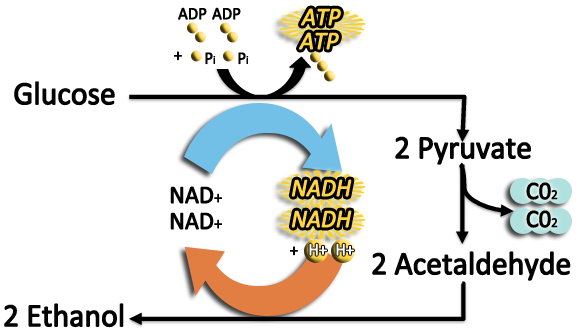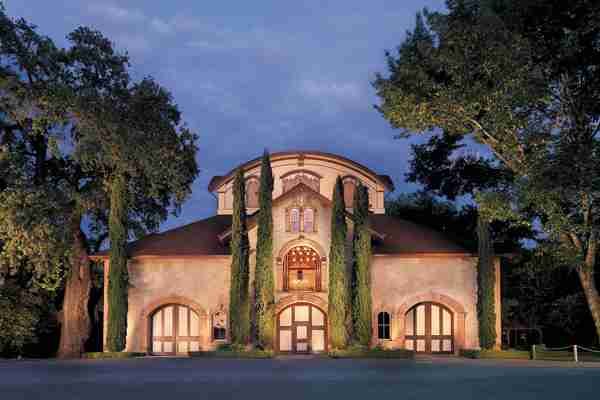We Review: proof the science of booze
Adam Rogers’ book, Proof: The Science of Booze, is easily one of the best books I’ve ever read.
Not one of the best books on alcohol I’ve ever read, but one of the best books, period.
Approachable, educational, and acutely witty. For example, Rogers calls vodka tonic, “arguably the dumbest mixed drink ever invented.” Swoon.
I might have paid more attention in Chemistry if Adam Rogers had been my professor.
Perhaps best of all, Proof: The Science Of Booze doesn’t put on the airs of a textbook.
There are scads of textbooks available about the science of alcohol — and I don’t want to read any of them.
Authors note: I got a lot of feedback on this post. Be sure to check out the entire article we wrote about no hangover wine.
Math and Science have never been my forte. Once upon a time, that really bothered me, but now that I’ve hit middle age, I’ve self-actualized.
We can’t all be good at math. However, there’s a lot to the study of wine and spirits that is super-math-and-sciencey.
There’s no escaping it. And while I try to wrap my brain around the formulas and equations, at a certain point (usually after about 23 seconds), my brain just shuts down.
So, when someone can explain the science to me without all the equations and formulas, I get super excited, and want to tell everyone else about it.
Prior to starting my WSET Diploma journey, I would just drink a glass of wine or bourbon.
Now I think about them. And the processes of fermentation, distillation, and aging that go into those glasses.
This is a diagram of the process of fermentation. My brain takes one look at this and says . . . nope.

Rogers dismisses the formulas, and explains fermentation like this: “Fermentation happens without us. It’s natural — give yeast some sugar and off they go.”
I totally get that.
But wait, there’s more. Rogers explains that fermentation is natural, whereas distillation is technology:
“Fermentation is a natural process, as close to a miracle as a science-minded type like me would ever acknowledge. Over human history we’ve learned to harness and adapt it. We domesticated the micro-organisms that make it possible, designed containers friendlier to it, created businesses around it. But a winemaker taking credit for fermentation is like a beekeeper taking credit for honey. Fermentation would happen whether men and women were here on earth or not.
Distillation, though, is technology. Human beings invented it; we came up with the process and developed the equipment. It requires the ability to boil a liquid and reliably collect the resulting vapors, which sounds simple. But to do it, you have to learn a lot of other skills first. You have to be able to control fire, work metal, heat things and cool them, make airtight, pressurized vessels. You need a big brain with a wrinkled cortex, maybe some opposable thumbs. But most of all you need a desire to change your environment instead of just live with what you have. Distillation takes intelligence and will. To distill, literally or metaphorically, requires the hubris to believe you can change the world.”
There’s a lot more explanation in the book, but Rogers makes an important and overarching point.
Humans have been drinking booze a lot longer than we’ve understood how to make it.
Not all that long ago, the best explanation for the process of fermentation was and then magic happens.
But as Rogers so beautifully says, “magic is really just advanced technology. Science is how we make magic”.
Rogers breaks down the science of alcohol into chapters on its base components.
Yeast (which “sparked a scientific revolution”),
Sugar (the “most important molecule in the universe”),
Fermentation, Distillation, and Aging (how we figured out that aging alcohol in wood would make it taste better).
There are also chapters on Smell and Taste (the subjective part of how we perceive alcohol),
Body and Brain (the objective part of how alcohol affects our systems), and perhaps of greatest interest to those of us who study alcohol — Hangover.
Proof: The Science Of Booze (Hangovers)
If you read no other chapter in Proof The Science Of Booze, read the chapter on hangovers. Because it starts like this:
“Good morning, sunshine! You are so screwed.
The light coming in through the window is so … there. You’d kill for a glass of water and die if it came with food. Your guts are in full rebellion; whatever happens next is going to happen in the bathroom. And for some reason you can’t remember how to read the clock next to your bed, even though you used to be able to do it relatively easily, you’re sure.”
You’re on the hook now, aren’t you?
The scientific name for hangover (because of course there’s a scientific name) is veisalgia, from the Greek word for “pain,” algia, and kveis, a Norwegian word meaning “uneasiness following debauchery.”
That sounds about right.
The Norwegians were Vikings. They know all about debauchery.
Fear of hangover (there really ought to be a scientific term for that) is the reason I rarely over-indulge.
I HATE feeling that way. It’s the worst. And if there were a way to cure a hangover (other than the Occam’s Razor, “don’t drink alcohol” solution), I’m dying to know.
So what does Proof have to say about hangovers?
“While 23 percent of people do not get hangovers (the scientific term for them is “jerks”), hangovers affect millions of people, maybe billions, and — here is the amazing part — “what causes hangover? Nobody really knows,” says epidemiologist Jonathan Elowland. “And what can you do about it? Nobody knows.” It wasn’t even until the last decade that researchers agreed on a basic definition of a hangover, much less started thinking carefully about how to treat it.”
The good news is that researchers are beginning to research hangovers and how to treat them.
Hallelujah! I’ve always thought dehydration was a major contributor to hangover, but Rogers mostly dismisses that.
Alcohol does dehydrate you, but according to Rogers, it does not cause a hangover. “Drink a glass of water. Now you’re hydrated. Did your hangover go away?” Nope.
According to Rogers, “the best theory going today about what really causes hangovers is that they are an inflammatory response, like what happens when we get an infection.”
There’s a bunch of sciency stuff in the book to support this, so I won’t spoil it for you.
Does anything really prevent hangovers, or help the morning after?
There are a handful of supplements which have undergone actual clinical trials, and have been shown to be at least somewhat effective in treating hangovers.
I have never tried any of these myself (I’m too chicken to be my own guinea pig), but here they are:
- Clotam, a prostaglandin inhibitor (anti-inflammatory), that isn’t sold in the United States, but prescribed overseas for migraines. There’s been some success using it to relieve hangover symptoms.
- Then there’s an extract from the skin of the prickly pear cactus — Opuntia ficus indica, which is also a prostaglandin inhibitor. Available on Amazon.
- There’s also a traditional Indian herbal concoction called Liv.52. It’s derived from flowers and “other ingredients”, which somehow speeds up the metabolism of ethanol in the liver. Again, available on Amazon.
- Finally, there’s a Chinese herb called Hovenia (dihydromyricetin is its organic chemistry name), which you can buy in all kinds of different formulations on Amazon. There haven’t been any clinical trials for this one . . . yet. If you try it out, let me (and Rogers) know.
William Faulkner once said, “Civilization begins with distillation.” And distillation is impossible without fermentation (you have to create alcohol before you can concentrate it). Civilizations have been fermenting and distilling nature into some kind of alcohol for millennia. We did it before we had the science to explain it, and now that we understand the science, we’ll continue to improve and control the processes.
Proof distills (you see what I did there?) the science behind alcohol into words that are available to all of us, not just scientists and organic chemistry students.










